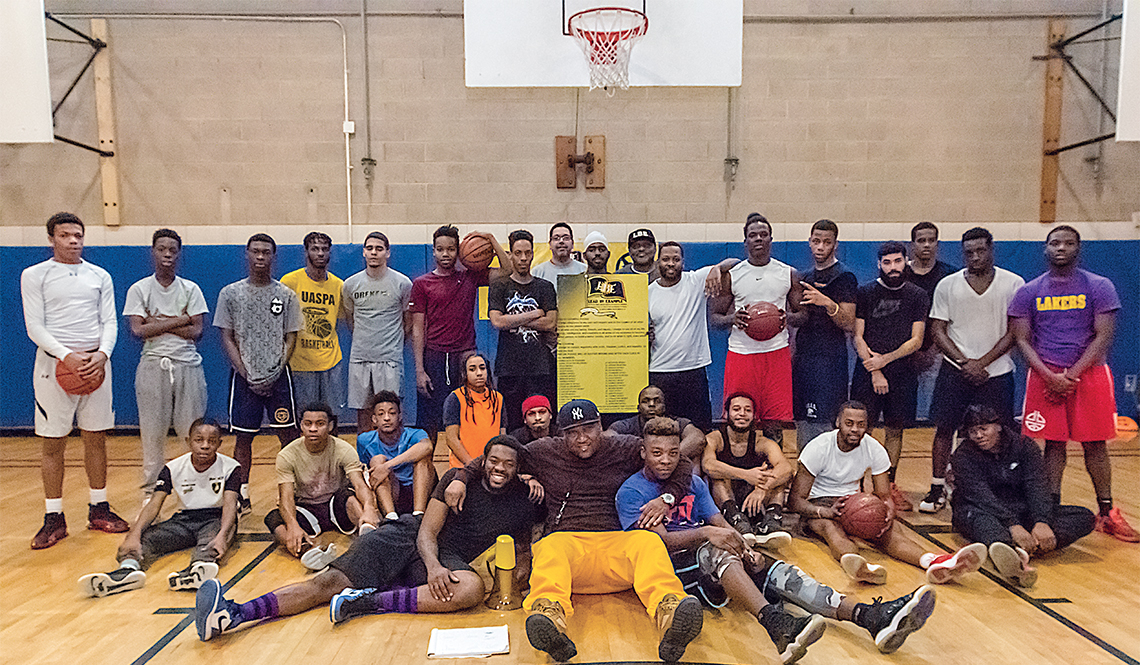Play all audios:
A man with a record makes it his mission to reverse the trend Antonio Hendrickson was 25 years old when he was convicted on drug conspiracy charges and sent to prison for 22 years, then the
mandatory minimum under federal sentencing guidelines. Now in his 50s, Hendrickson sees himself in the dozens of New York City adolescents he mentors. “I identify with them. All of those
shenanigans they’re trying to play, I’m hip to it,” he explains. “More than that, I care about them — and they know it.” Hendrickson began his mentorship work in prison, where he established
a program that had older convicts counseling new inmates about the impulsivity and anger that often lead to crime and recidivism. After being released in 2013, Hendrickson was determined to
use his experience to break the cycle of violence in his Harlem neighborhood and stop the flow of young people to prison, or worse. Lead by Example Reverse the Trend, his nonprofit
organization, was created to help prepare young people in disadvantaged communities for adulthood. “These particular kids are emotionally challenged — not mentally challenged,” Hendrickson
emphasizes. “They don’t know how to handle their emotions when they’re confronted with challenges, and it manifests in their behavior. They get into fights, disrupt their classes and get
suspended.” “They’re angry, and often with reason,” he adds. “Nobody listens to them. They have no voice, no power and no hope.” Often, the teens come from homes where their mothers work
long hours and their fathers are absent, in prison or dead. Hendrickson believes that when at-risk youth are armed with positive communication strategies and social skills, they can become
productive, confident adults. Lead by Example runs school and community programs that bring together ex-convicts and “off-track scholars,” as Hendrickson calls them. “We give them the
support they need from somebody they can respect, trust and talk to,” he says. Respect, trust and attention are the three things Hendrickson and his team of ex-offenders seek to provide
every child, in endless measure, during Saturday morning basketball games, field trips and in classrooms throughout Harlem and the South Bronx. “You’ll see. In just six to eight weeks, their
thought process changes. Their behaviors change,” Hendrickson says. “And if you ask them, ‘Do you want more?’ they say, ‘Yes!’” _This article is an excerpt from the "Inspire Community
Engagement" chapter of the AARP book Where We Live: Communities for All Ages — 100+ Inspiring Examples From America’s Community Leaders. _ _Article by Mary Ellen Flannery | Book
published June 2018 _

